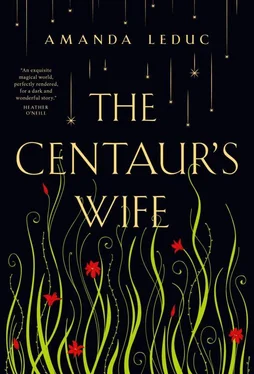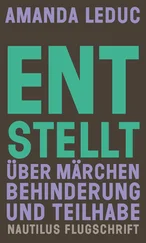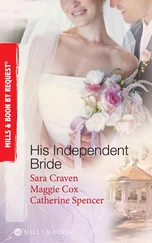Life had seemed strange to her until the meteors had come and taken her sister away. It was a delightful strangeness—days that sparked in front of her, brimming with both routine and possibility. She could audition one day and find the part that would change her whole life; she could buy a lottery ticket at the convenience store and lift her whole family into another world. Every day was another day wherein something could happen.
Then the meteors had come. She’d been staying at her sister’s place. Jaime had offered Moira her bed for the night, playing the good host, but Moira had said, “I’m fine on the couch,” and it turned out to be true. She had been fine—the meteor had come through Jaime’s bedroom window, demolishing the south side of the house and leaving the other half standing, practically untouched. There was nothing left of Jaime, not even bones.
She had expected to fall apart with grief, but instead the world became fuzzy, two-toned, monotonous. The collapse of things around them, the starvation—all of it unremarkable, all of it drudgery. She’d made her way back to her old basement apartment—her landlord was gone, or dead—and got used to living without power. One by one her neighbours left, and her friends disappeared. She grew potatoes in the backyard and was not surprised, come harvest, to find them stunted, almost inedible. She ate them anyway.
The other plants around her grew lush and green. Hollyhocks had bells as large as her hands and grew taller than her house. Tree roots broke the ground in the backyard. Berry bushes grew along the sides of the old roads, fruit hanging dark and luscious. For some reason, she did not touch those.
As the months stretched into fall and then to winter, she began to see small mounds on the roads when she went out in the morning—small green mounds with maybe a flash of red hair in one, a small curled hand in another. She didn’t look too closely. Then the winter came and the snow kept her mostly inside, except when she had to salvage for food.
When the scream came, she was outside again, scavenging for supplies. She first felt a tremor of rage and grief shiver through her. When the big orange flowers around her opened their mouths and let loose, she backed into the first building she could see, an abandoned restaurant, and shut herself in the bathroom at the back. The scream became human, became a hundred different screams, became footsteps that ran around in terror. She thought dully about how the Moira of a year ago would have been alive in her terror, electric in her madness, desperate to hang on. There was nothing to hang on to now, so why be terrified? Survival was an instinct. Survival was boring. That was the secret, that’s all it was. There was no hope, yes—but there hadn’t been any since Jaime had died.
She sat on the toilet and counted the tiles at her feet. They were chipped and filthy. One, two, three, and four. Five. Six. One hundred and twelve.
See? She almost wanted to open the door and scream at them all. See? You have it all wrong. Grief isn’t painful—it’s just boring. Boring as fuck. You can get used to it too.
She sat on the toilet until the world went quiet and then sat until the darkness outside was absolute. Then she stepped out of the bathroom and around the bodies on the floor and went outside. She walked back to her apartment. Just like she’d done in the days after Jaime, she let herself in and crawled into bed, and slept until she couldn’t anymore.
When she woke, it was late afternoon and the world outside had changed again, gone lush and thick, an even deeper green. For the first time Moira could remember since the meteors fell, it felt wrong to be inside. She changed into cleaner clothes and went out.
There were so many bodies. On the ground, slumped in doorways, everywhere. As she walked, vines stretched over the ground like twisted green snakes—slithering over the bodies, winding around the bodies, covering their hands and faces and hair in emerald green.
She avoided the vines as she walked. Eventually, even this felt ordinary, like she’d seen it all before.
Darkness, and then light. A force breaks her from the dirt. Air rushes at her face and she gasps in great lungfuls of it.
Blue-green eyes drink her in.
Aura.
Aura drops her on the ground, hard enough for stars to sparkle across her eyes. When her vision clears, Aura is all she can see.
“I should have let you suffocate,” Aura says, her voice low and terrible. She yanks Heather up by the shoulder and stares her in the face. “I almost,” and she squeezes Heather’s shoulder so hard she gasps, “didn’t get here in time. I almost didn’t come here at all! If Estajfan hadn’t told me to check on you— Heather. A few more seconds and you would have been gone. The ground was already smoothing over. There was almost no sign of you at all.”
“I just—” Heather stares, her teeth chattering. “I just—wanted—to be different. I wanted my life to be—different.”
“You are different,” Aura says, and she lets Heather’s arm drop. Heather backs up until she’s leaning against the willow again. She feels the ground rumble and then go silent.
But she’s not different—she’s the same, Heather realizes. Covered in dirt—dirt in her clothes, stuffed in her ears, gritty in her mouth—but every bit the same. Her own two legs. Her own fragile human body. The baby kicks, fierce and alive. She bends over her belly and sobs.
“You can’t trust the mountain,” Aura says. “If the mountain can birth a centaur, it can birth all other kinds of lies.”
“But it made your father different,” she whispers.
“My father was already halfway into another world. You don’t want that—you just want the world to know who you are.”
Heather shuts her eyes and leans back against the tree. “There’s no one left to know who I am,” she says. “Everyone is gone.”
“Not everyone,” Aura says. When Heather looks at her, the moonlight shines behind her head like a halo. “You and Estajfan—” Aura makes a gesture with her arms, a half-circle—“I see you in his face. In the way he moves. I don’t think even he understands it. The way our father kept seeing our mother long after he’d left the village and come back to the mountain. Your bond marks you both in ways that even the mountain does not understand.”
There’s another rumble beneath Heather’s hands. She thinks it’s the mountain, disagreeing, but then the rumble resolves into hooves striking the ground. Petrolio bursts from the trees, his face full of terror.
“Estajfan!” he cries.
“What?” Heather pushes herself up and stumbles to Aura.
“He’s in trouble,” Aura says, knowing instantly what Petrolio means. “The mountain”—her voice drops low—“the mountain won’t let me see anything else.”
Heather goes to the three willows and places her hand against a trunk, looks out across the land that stretches on and on into the dark. Foothills and flatlands and the ruins of so many cities. Far beyond that, the sea.
She couldn’t see him on the mountain, but she can see him now. Below them, back down in the world that she knows.
“He’s by the water,” she says. “Or close to it.”
“Is he hurt?” Aura and Petrolio cry together.
She closes her eyes and feels a darkened space, shadows skittering over the windows. The floor cold against her cheek. Against his cheek. The glint of metal. A rifle in the corner.
“People.” It’s the first thing she can say.
“What?” Petrolio grabs her free arm hard.
Читать дальше













